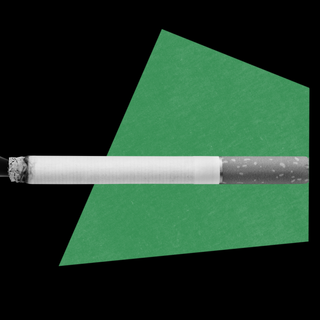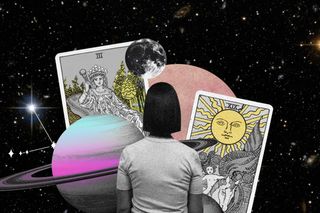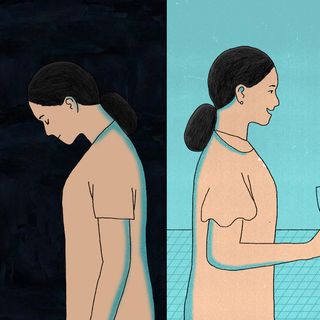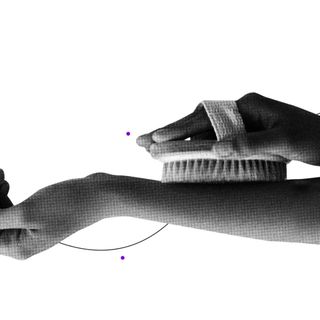
Can Occult Disciplines Like Astrology, Tarot Improve Mental Health?
While occult disciplines can encourage introspection and self-awareness, experts caution against relying on them entirely for mental health issues.

The uncertainty and subsequent mental health crisis following the pandemic led many to turn towards occult disciplines, with astrologers and tarot card readers stating that they have been working overtime since the lockdown started. Indian companies like AstroTalk and AstroYogi, too, have reportedly doubled their revenues during this period. The rush to these pseudoscientific occult disciplines is emblematic of the larger reason people are drawn to them: a desperation to cope.
“Under conditions of high stress, the individual is prepared to use astrology as a coping device even though under low-stress conditions he does not believe in it,” Graham Tyson, Professor of Psychology at the University of the Witwatersrand in South Africa, said. In fact, the first astrology column to be commissioned for a newspaper was during the Great Depression in August 1930.
Charan, 20, turned to astrology while trying to find her way out of an “unhealthy relationship.” Even though she didn’t believe in astrology per se, she chose it because it offered her a “guiding light” at a point when she had “nowhere else to turn to.” And while astrology didn’t help her look into the future, it helped her achieve precisely what she needed — growing out of that relationship. “[It] gave me something to make sense of things through… I was looking for signs and even a little bit of nudge from what was written in the zodiacs helped,” she says.
Experts acknowledge that while pseudoscientific disciplines like astrology may not have any backing in science, they aren’t necessarily unhelpful. “Can they, on occasion, aid one’s recovery from a mental illness? Yes, they work sometimes. Visiting a shaman or a local healer can indeed make someone’s symptoms disappear — but it has no statistical significance,” explains Bhasker Malu, an assistant professor of psychology at Christ (deemed to be) University in Bangalore. “There’s simply no research-based science behind it, no causation; it just happens to work for some people, and not for others,” he says.
Related on The Swaddle:
Millennials and Meme Culture Have Reclaimed Astrology
“In times of crisis, it is often said, people search for something to believe in… unlike therapy, where a client might spend months or even years uncovering the roots of a symptom, astrology promises to get to answers more quickly,” Christine Smallwood, a fellow at the New York Institute for the Humanities, wrote in The New Yorker. Moreover, the fact that resources on occult disciplines are often easily — and even freely — available online, while mental healthcare can be unaffordable for many, especially in India, pushes people towards the occult universe.
However, psychotherapy and pseudosciences like astrology and tarot, do share similarities — they encourage introspection, self-awareness, and a willingness to understand oneself with the help of external guidance. “We have belief systems, which dictate how we react to the world. If somebody, who really believes in astrology, reads a horoscope saying their depression will disappear in a week — the symptoms might indeed disappear because the horoscope appealed to their belief system,” Malu, who also runs OneStopPsychology, an organization that trains and educates therapists, notes. “Psychotherapy, too, through techniques like cognitive-behavioral therapy works on an individual’s belief system, which is central to the symptoms a patient is showing, and tries to shift them,” he explains.
Pseudosciences can encourage introspection too. “More than being a tool for divination, tarot allowed me to self-reflect and become more self-aware,” Vrushali Khadilkar from Aurangabad, who found her experience with a tarot-reader so helpful while dealing with a turbulent phase in her life that she chose to study it herself and now provides readings for others, says. “It forces you to face whatever you have been denying seeing — be it related to your love life, to your career, whatever. Tarot, basically, addresses our subconscious,” she added. In her love life, it pushed her to “ask questions more often, and do away with relationships that don’t make sense to me” — instead of clinging on to them and prolonging her suffering.
Psychologists agree with Khadilkar’s theory. “By focusing on something outside ourselves, a specific card, the astrological alignment, we are able to move our consciousness from the intensity and reactivity of our limbic system,” and in doing so, help “the patient can gain clarity on their feelings and find grounding in the uncertainty in which we are all currently living,” Paul Hokemeyer, a clinical and consulting psychotherapist from New York, explains.
However, many experts agree that the extent of their helpfulness is limited. “I love astrology, but it can’t help you gain deeper coping skills that allow you to move through trauma,” Aimee Barr, a psychotherapist and astrologer from Brooklyn, says.
Given the lack of consensus on how much they can help with mental health issues, some think that it might, in fact, be challenging to even have the two work in conjunction because one is rooted in science, while the other isn’t. “Psychotherapy, as a science, is much more clear in terms of the consequences each technique can have. Trying to combine it with pseudosciences can be really risky — like shooting in the dark,” says Malu.
Related on The Swaddle:
Why Do People Still Believe In Astrology?
Moreover, believers of occult disciplines can cling harder to the diktats of fate in times of crisis — leading to a sense of resignation to the notion that their suffering is mandated by supernatural forces beyond their control. Psychotherapy, on the other hand, constantly pushes people to take charge of their suffering and extricate themselves from beliefs that aren’t conducive to their growth and emotional well-being. Thus, there’s a fine line between using non-scientific disciplines to guide one’s choices and relying solely and overtly on them to find solutions to every challenge — especially if the challenges in question are mental health disorders.
“Over-reliance on astrology or tarot, or any other spiritual approach, to the exclusion of others, could lead to a perpetuation of symptoms or difficulties rather than providing an individual the relief he or she is seeking,” says Caroline Hexdall, a clinical psychologist. According to her, the reason pseudosciences fail to provide relief beyond a point is because they lack “the important individual discoveries, individual interventions, and greater objectivity that a therapist can provide.”
Pranav, 30, was diagnosed with autism as an adult. Before the diagnosis, however, he resorted to astrology to find some mental peace when the stress of existing in a neurotypical society began burning him out. However, unlike Charan, he didn’t find astrology helpful at all. “It was all hocus-pocus, nothing good happened, and I realized if I didn’t seek professional help, I would end up doing something bad,” he says.
Some people with expertise in occult disciplines, too, share Hexdall’s views and understand the boundaries of their discipline. “Sometimes when people come to me with their problems and I realize a therapist should be dealing with it instead of a tarot-reader — I have to carefully, respectfully advise them to seek help there,” S., a Mumbai-based professional tarot-reader, says. However, she mentions coming across tarot-readers who cross that ethical boundary and continue to advise someone who would benefit from mental healthcare instead. It’s important to navigate the “grey areas” carefully — and draw a line recognizing the limitations of tarot, she emphasizes.
Psychologists, on their part, can be cognizant of their patients’ belief systems, rather than being dismissive of occult disciplines completely. Engaging with patients on their pseudoscientific beliefs can “enable the therapist to engage with the patient and speak to them in a way that has a resonance and personal meaning to the patient,” Hokemeyer notes from his clinical experience. While it might not be possible for occult disciplines and psychotherapy to embrace each other, a sense of open-mindedness between practitioners of the disciplines to facilitate better treatment of patients, can, perhaps, benefit mental healthcare — especially as we continue to steer toward a “future that is uncertain and terrifying,” in Hokemeyer’s words.
Devrupa Rakshit is an Associate Editor at The Swaddle. She is a lawyer by education, a poet by accident, a painter by shaukh, and autistic by birth. You can find her on Instagram @devruparakshit.
Related


What It’s Like To Live With: Bipolar Disorder
